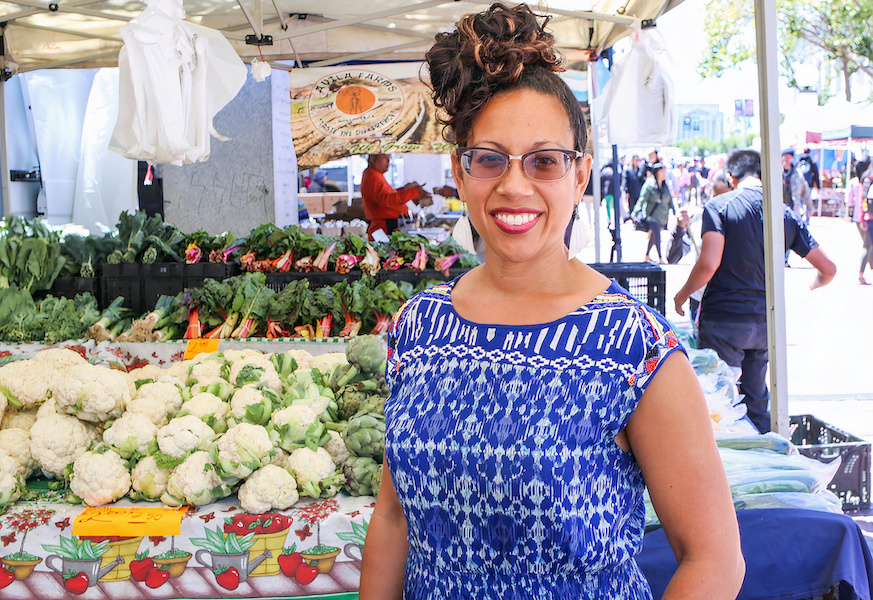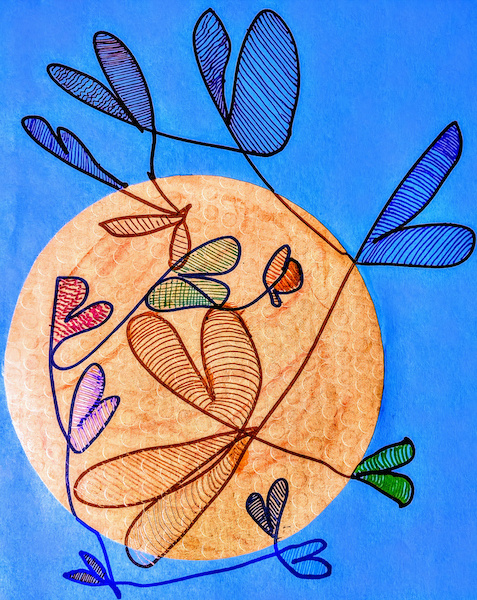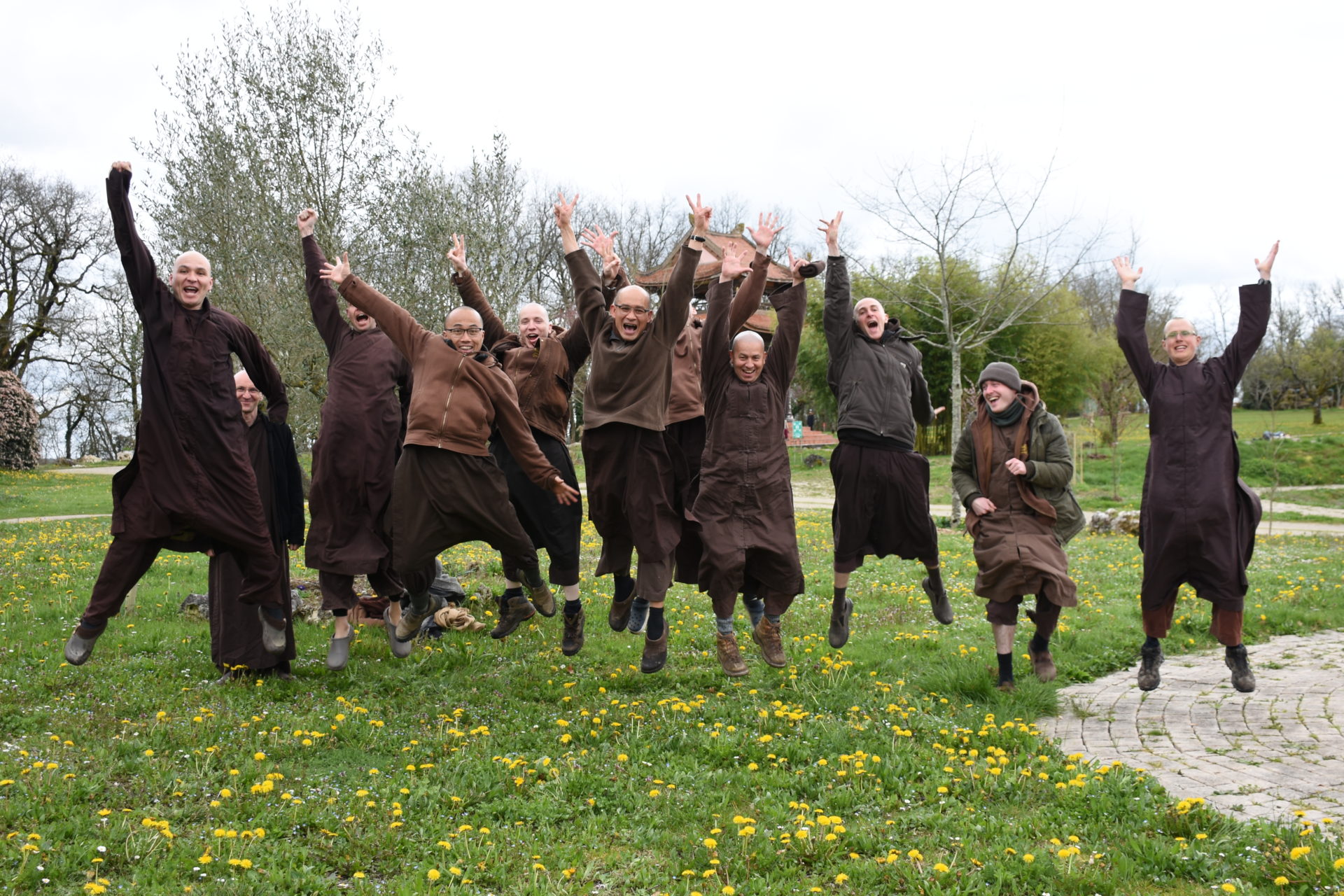The Birth of a Singles Sangha
By Octavia Baker

Over the last four years, none of my romantic relationships have lasted more than a year. But at some point in each relationship, I would start fantasizing about bringing that person to the Couples Sangha in the San Francisco Bay Area. The Couples Sangha was started in 2011 in the Plum Village tradition and meets monthly to practice meditation and Dharma sharing “to deepen our connection with ourselves,
The Birth of a Singles Sangha
By Octavia Baker

Over the last four years, none of my romantic relationships have lasted more than a year. But at some point in each relationship, I would start fantasizing about bringing that person to the Couples Sangha in the San Francisco Bay Area. The Couples Sangha was started in 2011 in the Plum Village tradition and meets monthly to practice meditation and Dharma sharing “to deepen our connection with ourselves, our partners, and our communities.” I have never attended. But it has always represented a milestone for me: if this relationship lasts six months, then I can attend! In retrospect, I know it wouldn’t have been as magical as I imagined. I tend to prefer BIPOC spaces because of the sense of safety and homecoming I feel, but the Couples Sangha is open to all ethnicities and races. However, as Thich Nhat Hanh teaches, this idea of happiness was causing me much suffering.
Nonetheless, the idea of Couples Sangha loomed large in my mind—until the pandemic. As I sheltered in place, alone in my one-bedroom apartment, I turned towards the depth of my longing to belong to a group I wasn’t “eligible” for. Embracing beginner’s mind, I saw that I could choose instead to start right where I am. I decided to start a Singles Sangha!
Almost twenty people joined one of our monthly gatherings this past fall, mostly from my home Sangha, Hella Just and Compassionate Sangha, which started in 2006. During the initial meeting, we discussed the purpose of the Sangha, and shared intentions for joining and any fears that were arising. We read the original description I had drafted: “The Hella Single(s) Sangha is a welcoming and inclusive community for Black, Indigenous, and people of color of all genders and sexualities who gather to connect with others who, by choice or circumstance, do not have a primary partner at this time.”
One Sangha member suggested we delete the phrase “at this time” because it makes it seem like being single is a temporary status. For some of us, we hope it will end as soon as possible and for others, being single is a more comfortable home or source of refuge. For me, it was a relief to hear from others who were not distressed about their relationship status.
It has been nourishing to see being single from different viewpoints and recognize all the diverse reasons people have joined this Sangha: from wanting to uplift the value of being single and push against the hierarchies of partnered relationships and couples’ privilege to the desire to explore spiritual friendship and mindful dating. Over the next few gatherings, we read about queering friendship in Mia Birdsong’s How We Show Up: Reclaiming Family, Friendship, and Community, listened to Lama Rod’s Embracing the Sexual Divine1, and explored different versions of the Fourteenth Mindfulness Training on True Love.

At our first Sangha gathering of the new year, after hearing my single siblings express their perspectives and frustrations about the mystery of true love in a romantic relationship, I felt so much less alone. Soon after, I had a revelation about the Six Mantras outlined in Thay’s book How to Love. With fresh eyes, I wondered: What if we substituted “we” for “I” in some of the practices? Instead of a beloved individual, how would it feel to direct these mantras to our beloved community, our Sangha body?
One: Darling, we are here for you.
Two: We know you are there and we are happy.
Three: We know you are suffering
Four: We are suffering.
Five: This is a happy moment.
Six: You are partly right.
The last one is my favorite mantra. It reminds me of the sign I have hanging in my bathroom, “Don’t believe everything you think.” Like life, singlehood is full of 10,000 joys and 10,000 sorrows. Just as in romantic relationships, each moment is pleasant, unpleasant, or neutral. When I find myself idealizing romantic partnerships, I can listen to the troubles of my coupled friends and remind myself that “I am partly right.”
After ten months of sheltering in place and working from home, I reflected on solitude on the first day of the new year. I started journaling about opposites: solitude/companionship, solitary/accompanied, and alone/together. When I looked deeply, I could see that all of these states inter-are. Out of this contemplation arose my intention for the new year to take refuge not only in the mahasangha, but also in the Sangha within me. I found the perfect expression in these two gathas from the New Sangha Practice Book and the 2020 New Year’s Retreat I attended last year, hosted by the Sugarplum Sangha in Ukiah, California:
Breathing in, I feel the support of the Sangha of my breath, my body, my ancestors and all the positive elements which are part of this moment.
Breathing out, I take refuge in the Sangha in myself. I aspire to help all people build fourfold communities, to embrace all beings and support their transformation.
Breathing, singing, and sitting virtually with Sangha members across the United States, I have truly experienced the felt sense of being “alone together,” the unofficial theme of 2020. And I still laugh in appreciation at a “minor” fear someone voiced at our first gathering: “What if we get into a relationship and can’t share this space anymore?” In our short time together, we’ve already experienced one person leaving our Sangha for that reason. In honor of her transition, we sang “No Coming, No Going.” Each Sangha gathering allows me to bring a beginner’s mind—not knowing who will attend, what insights will arise, or which feelings will come and go.
The more we embrace the Sangha, the more we can let go of the feeling of a separate self. We can relax into the collective wisdom and insights of the Sangha. We can see clearly that the Sangha eyes and hands and heart are greater than that of any individual member of the Sangha.
Thich Nhat Hanh, Happiness: Essential Mindfulness Practices
1 Lama Rod Owens, “Embracing the Sexual Divine: Liberating Ourselves from Sex and Body Shame,” July 9, 2019, https://www.lamarod.com/blog/2019/5/3/embracing-the-sexual-divine-liberating-ourselves-from-sex-and-body-shame/
Octavia Baker, Radiant Breath of the Heart, has been practicing with the Hella Just and Compassionate Sangha in the San Francisco Bay Area, US, since 2009. The daughter of a Filipina immigrant and the great-great-granddaughter of former slaves, she is a seeker and connector committed to cultivating spaces of joy and belonging within herself and communities of color.

